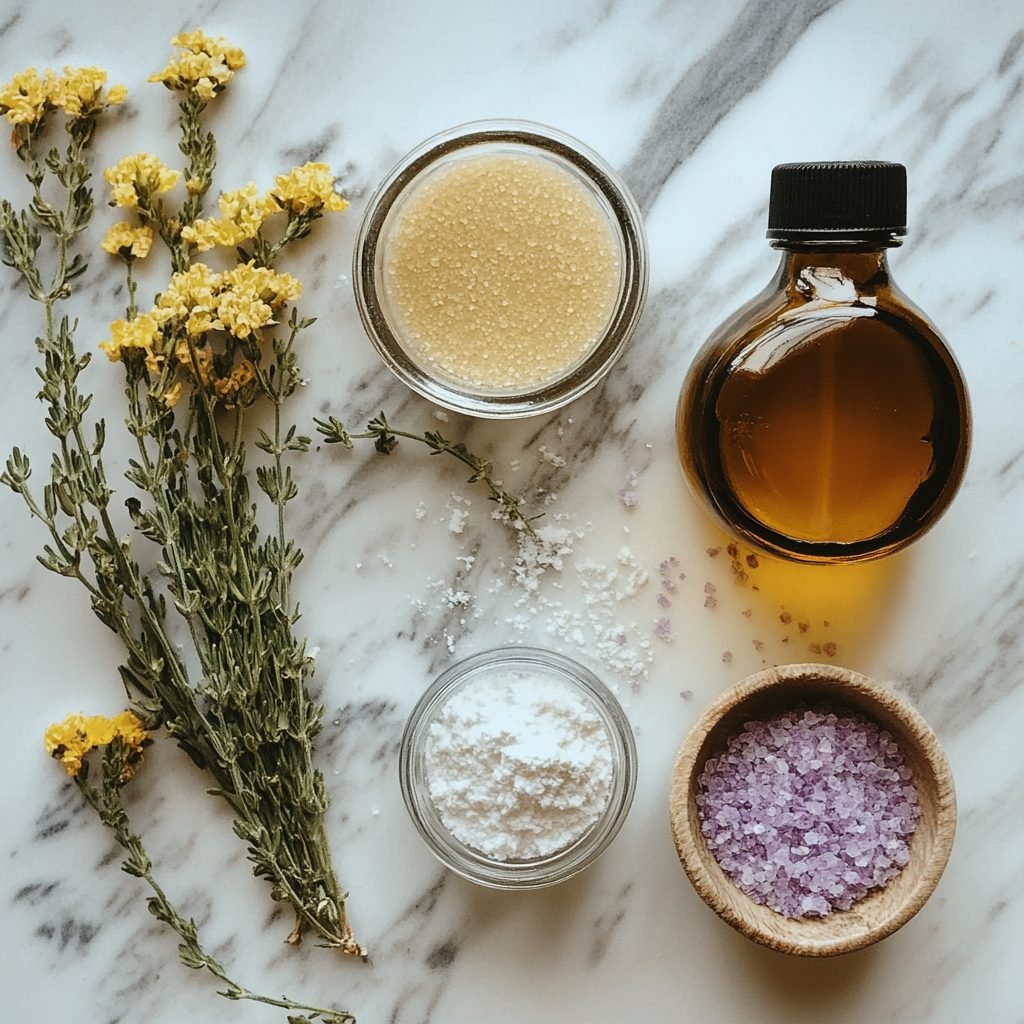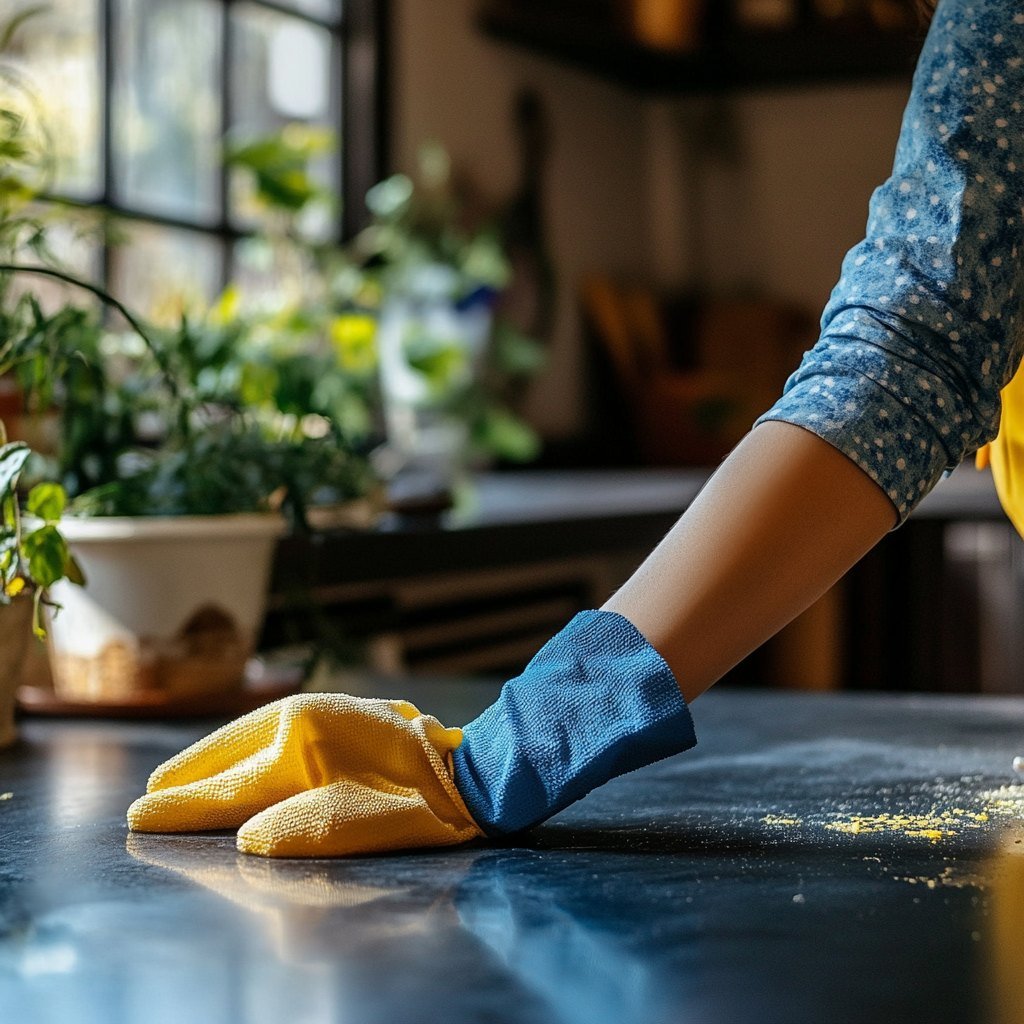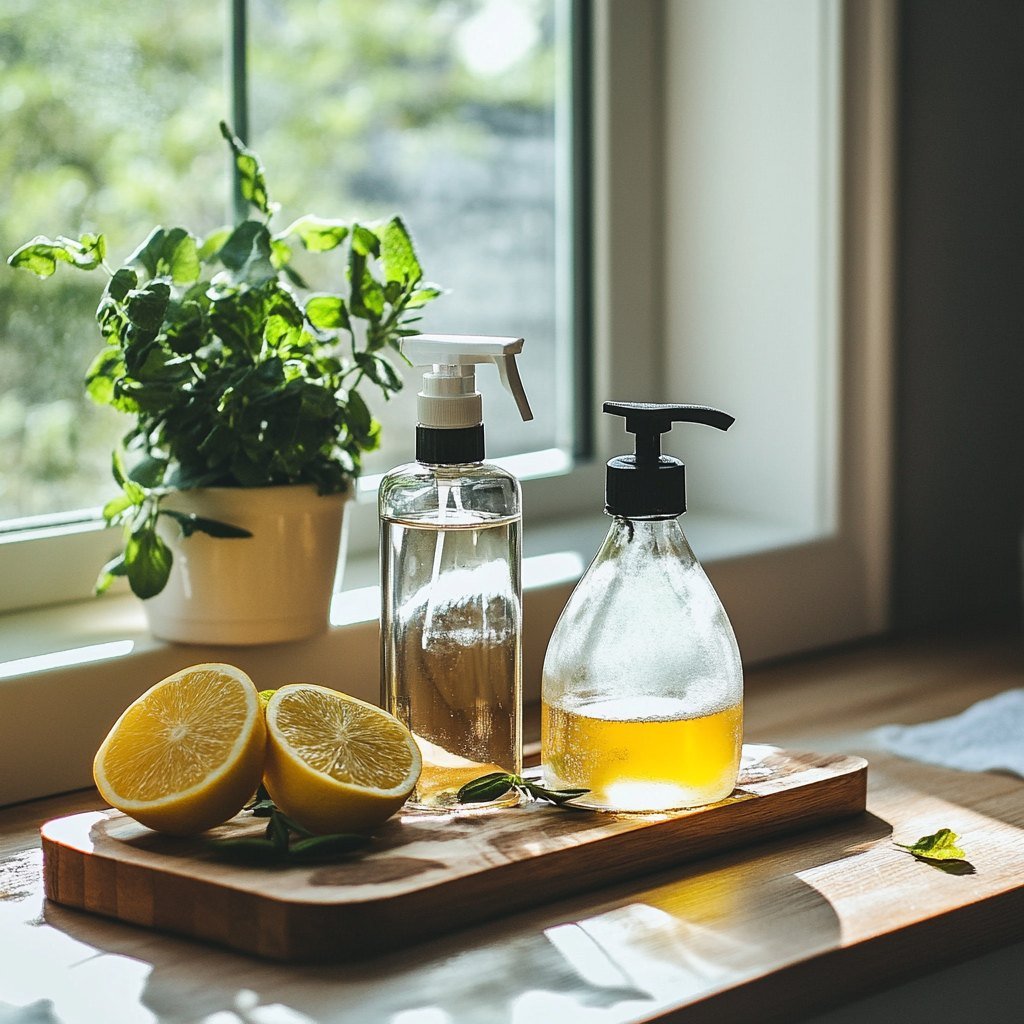Are you tired of using harsh chemicals to clean your home? Do you want a healthier environment for your family without compromising on cleanliness? Cleaning your home naturally is easier than you might think. In this guide, we’ll share eco-friendly tips to help you maintain a spotless home using natural ingredients that are safe for you and the planet.
The Best Roofing Solutions for a Sustainable Home | Spring Cleaning Checklist: Get Your Home Ready
The Best Cleaning Products for a Healthy Home | Spring Cleaning Checklist: Get Your Home Ready
Why Choose Natural Cleaning Methods?
Health Benefits
- Reduce Exposure to Chemicals: Conventional cleaning products often contain toxins that can cause allergies and respiratory issues.
- Safe for All Ages: Natural cleaners are gentle, making your home safer for children and pets.
Environmental Impact
- Biodegradable Ingredients: Natural products break down easily, reducing pollution.
- Less Waste: Many natural cleaning solutions use minimal packaging, cutting down on plastic waste.
Essential Natural Cleaning Ingredients
1. White Vinegar
- Uses: Disinfectant, deodoriser, and stain remover.
- Applications: Ideal for cleaning glass, countertops, and bathroom fixtures.
2. Baking Soda
- Uses: Abrasive cleaner and odour neutraliser.
- Applications: Great for scrubbing sinks, ovens, and freshening carpets.
3. Lemon Juice
- Uses: Natural bleach and grease cutter.
- Applications: Perfect for cleaning cutting boards and shining metals.
4. Castile Soap
- Uses: Gentle, all-purpose cleaner.
- Applications: Suitable for dishes, floors, and even as a hand soap.
5. Essential Oils
- Uses: Add fragrance; some have antibacterial properties.
- Applications: Enhance cleaning solutions with scents like lavender or tea tree oil.

DIY Natural Cleaning Recipes
All-Purpose Cleaner
Ingredients
- 1 cup white vinegar
- 1 cup water
- 10 drops of essential oil (e.g., lemon or lavender)
Instructions
- Combine Ingredients: Mix vinegar, water, and essential oil in a spray bottle.
- Shake Well: Ensure the mixture is thoroughly blended.
- Clean Surfaces: Spray onto surfaces and wipe clean with a cloth.
Glass and Mirror Cleaner
Ingredients
- 1 part white vinegar
- 1 part water
- Microfibre cloth or newspaper
Instructions
- Prepare Solution: Mix equal parts vinegar and water in a spray bottle.
- Spray and Wipe: Apply to glass surfaces and wipe for a streak-free shine.
Bathroom Scrub
Ingredients
- 1/2 cup baking soda
- Liquid castile soap
- 5 drops tea tree essential oil
Instructions
- Create Paste: Mix baking soda with castile soap until it forms a paste.
- Add Essential Oil: Incorporate tea tree oil for its antibacterial properties.
- Scrub Away Grime: Apply to tiles and tubs, then rinse thoroughly.
Floor Cleaner
Ingredients
- 1/2 cup white vinegar
- 4 litres of warm water
- 5 drops of essential oil (optional)
Instructions
- Mix Together: Combine vinegar and water in a bucket.
- Add Fragrance: Optional—add essential oil for a pleasant scent.
- Mop Floors: Use the solution to clean hardwood or tiled floors.
Natural Air Freshener
Ingredients
- 1 cup water
- 2 tablespoons baking soda
- 10 drops of your favourite essential oil
Instructions
- Combine Ingredients: Mix water and baking soda until dissolved.
- Add Essential Oil: Stir in the essential oil.
- Spray Around Home: Use as an air freshener to eliminate odours.
Eco-Friendly Cleaning Tips
Tip 1: Use Reusable Cleaning Cloths
- Why: Microfibre cloths are effective at trapping dirt and can be washed and reused.
- Benefit: Reduces waste from disposable wipes or paper towels.
Tip 2: Opt for Natural Sponges
- Why: Natural sponges are biodegradable and free from synthetic materials.
- Benefit: Less environmental impact when disposed of.
Tip 3: Open Windows for Fresh Air
- Why: Ventilation helps remove indoor pollutants.
- Benefit: Improves indoor air quality naturally.
Tip 4: Declutter Regularly
- Why: Fewer items mean less dust and easier cleaning.
- Benefit: Makes your home feel more spacious and organised.
Tip 5: Make Small Batches of Cleaners
- Why: Freshly made solutions are more effective.
- Benefit: Reduces the need for preservatives in your cleaning products.

Common Mistakes to Avoid
Mistake 1: Mixing Vinegar and Castile Soap
- Issue: They cancel each other out, reducing effectiveness.
- Solution: Use them separately for different cleaning tasks.
Mistake 2: Overusing Essential Oils
- Issue: Can cause skin irritation or allergic reactions.
- Solution: Use essential oils sparingly and keep out of reach of children.
Mistake 3: Using Vinegar on Stone Surfaces
- Issue: Vinegar’s acidity can damage granite and marble.
- Solution: Use a pH-neutral cleaner for stone surfaces.
Summary Table
| Natural Ingredient | Uses | Notes |
| White Vinegar | Disinfecting, deodorising | Avoid on natural stone surfaces |
| Baking Soda | Scrubbing, odour neutralising | Safe for most surfaces |
| Lemon Juice | Cutting grease, bleaching | Test on small area first |
| Castile Soap | General cleaning | Do not mix with vinegar |
| Essential Oils | Fragrance, antibacterial properties | Use sparingly; may cause allergies |
Conclusion
Switching to natural cleaning methods is a simple yet impactful way to create a healthier home environment. With basic ingredients like vinegar, baking soda, and essential oils, you can make effective cleaners that are kind to both your family and the Earth. Start embracing these eco-friendly tips today and enjoy the benefits of a naturally clean home.
Ready to Embrace Natural Cleaning?
Why not try making one of these DIY cleaners today? For more eco-friendly living tips, explore our guide on sustainable home improvements.
FAQs
Natural cleaners like vinegar and tea tree oil have antibacterial properties but may not eliminate all germs. For areas requiring thorough disinfection, consider using products approved for killing specific pathogens.
While natural cleaners are generally safe, some surfaces like marble or granite may react adversely to acidic ingredients like vinegar or lemon juice. Always do a patch test first.
Store them in labelled, airtight containers away from direct sunlight. Most solutions are best used within a few weeks.
Yes, homemade cleaners often cost less than commercial products and reduce packaging waste.
Some essential oils can be harmful to pets. Research or consult a vet before using them in areas accessible to your animals.




